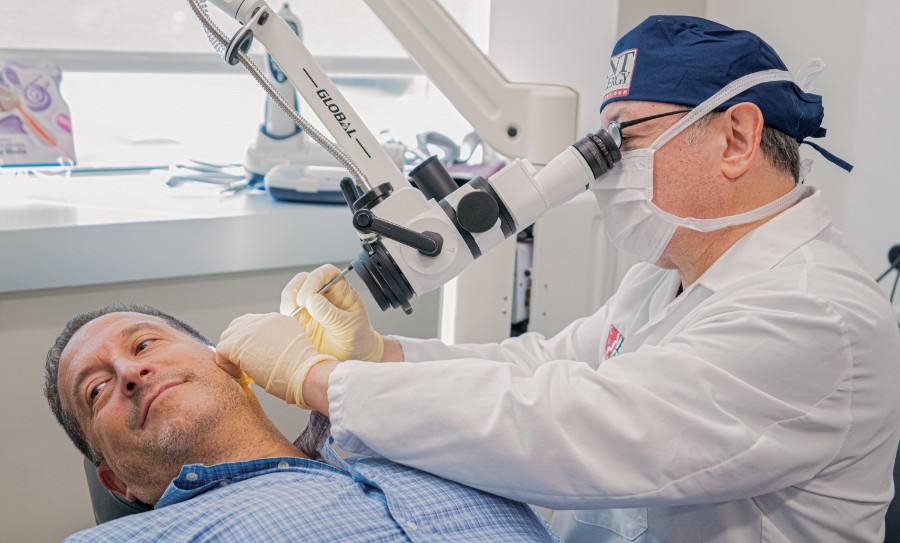
Do you ever feel like the world is spinning around you or that your ears are suddenly ringing? If so, you may be experiencing symptoms of Meniere's disease. Meniere's disease is a disorder caused by an abnormal amount of fluid in the inner ear which affects both hearing and balance. It can cause patients to experience a range of symptoms from dizziness to tinnitus—and it is important to understand what Meniere’s disease looks like so that it can be managed effectively if needed.
Meniere’s disease involves the combination of ear pressure, tinnitus, hearing loss, and vertigo, and is the result of excess pressure of endolymphatic fluid in the inner ear. However, atypical forms of Meniere’s disease may result in virtually any combination of the above symptoms. The disease typically persists for several months and may then go into remission. The condition may then re-emerge after periods of stress, dehydration, or high salt intake. Both the hearing and balance functions may diminish with such recurrences. Meniere’s disease usually occurs in only one ear but may involve both ears in 10% of patients.
The three stages of treatment are as follows:
- The first stage of treatment for Meniere’s disease involves diuretics, salt restriction, oral steroids, aggressive oral hydration, allergy treatment, and avoidance of caffeine, alcohol, and stress.
- The second stage of treatment involves injections of steroids or gentamicin into the ear, the minimally invasive Meniett device, or endolymphatic sac-mastoid shunt surgery.
- The third stage of treatment involves such measures as a labyrinthectomy or vestibular nerve section. Fortunately, the third stage of treatment is rarely necessary.
Of note, there is considerable overlap in symptoms between migraine-associated dizziness and Meniere’s disease, and the former should be considered in patients for whom treatments for presumed Meniere’s disease prove ineffective.
Seeking relief from cholesteatoma and related conditions? Look no further than ENT & Allergy Associates! As a dedicated subdivision of ENT & Allergy Associates, we boast over 25 years of experience and have access to the nation’s largest network of specialized physicians across the nation. We are focused on providing a superb patient experience. Trust us to bring clarity and balance back to your life. Schedule your appointment with our audiologists today.
To learn more about Meniere’s disease and how our audiologists can assist you, reach out to your local ENT & Allergy Associates today.

Patient Stories
-
"Everyone was very helpful and knowledgeable. There was no wait to see the doctor."
- Linda S. -
"I went to this office to get allergy tested and my sinuses checked. I want to preface saying I have really bad medical anxiety so I look for doctors who are sensitive to that. Allergy testing: Dr. K was so delightful. She was kind and thoroughly explained the process. Her nurses were very kind, too. They really were personable and made me feel less anxious. ENT: Dr. G - O. M. G. I couldn’t believe how calm his demeanor was. He was so soft spoken, heard my concerns, was gentle, and explained his thoughts and next steps thoroughly. I left his office feeling relaxed. Overall, I highly recommended this office!!"
- Janay M. -
"Very good service and Very Efficient."
- Fit2Fend Academy (Master Sabree)
Less Sick Days, More Living

